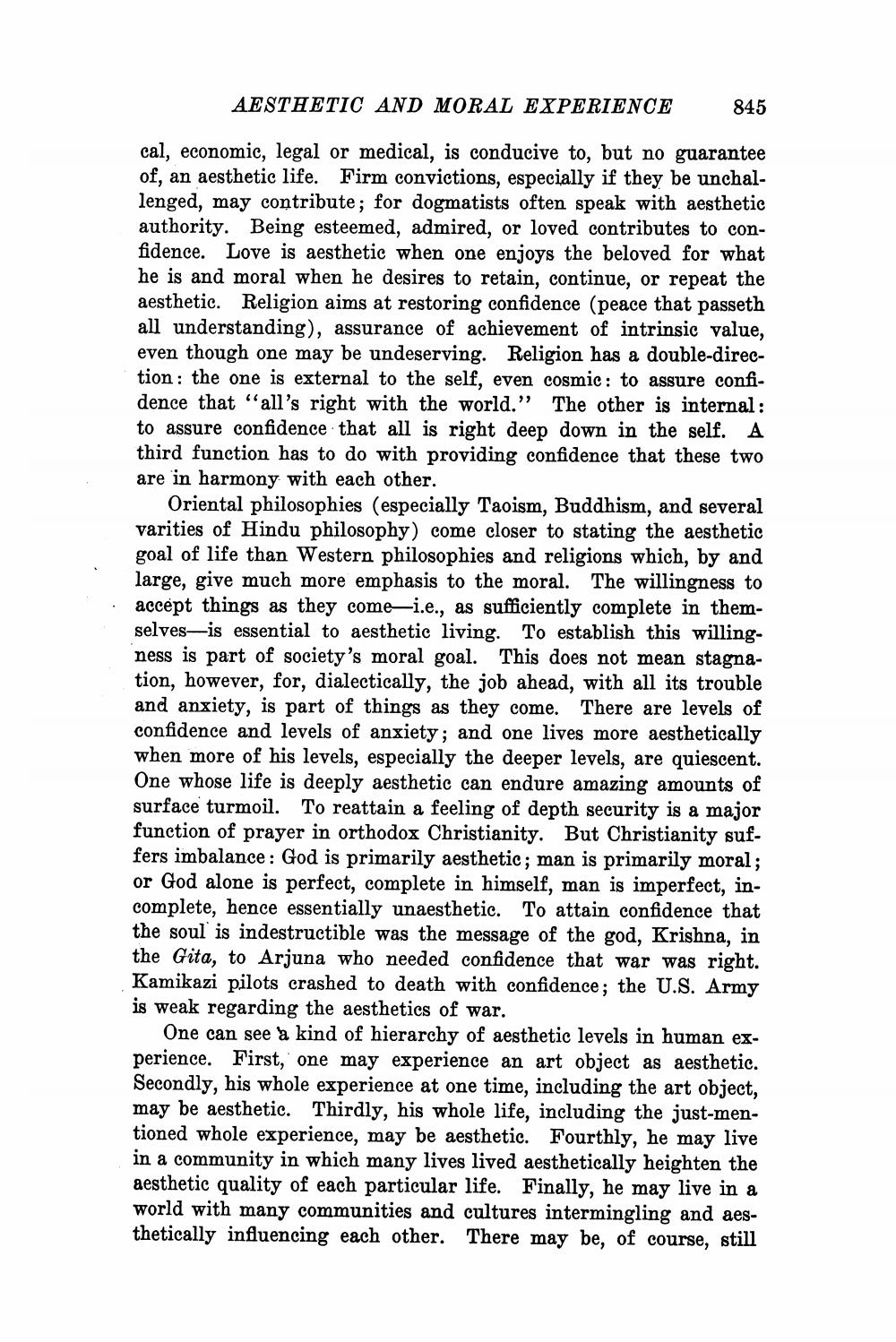Book Title: Three Essays On Aesthetics Author(s): Archie J Bahm Publisher: Archie J Bahm View full book textPage 9
________________ AESTHETIC AND MORAL EXPERIENCE 845 cal, economic, legal or medical, is conducive to, but no guarantee of, an aesthetic life. Firm convictions, especially if they be unchallenged, may contribute; for dogmatists often speak with aesthetic authority. Being esteemed, admired, or loved contributes to confidence. Love is aesthetic when one enjoys the beloved for what he is and moral when he desires to retain, continue, or repeat the aesthetic. Religion aims at restoring confidence (peace that passeth all understanding), assurance of achievement of intrinsic value, even though one may be undeserving. Religion has a double-direction: the one is external to the self, even cosmic: to assure confidence that “all's right with the world." The other is internal: to assure confidence that all is right deep down in the self. A third function has to do with providing confidence that these two are in harmony with each other. Oriental philosophies (especially Taoism, Buddhism, and several varities of Hindu philosophy) come closer to stating the aesthetic goal of life than Western philosophies and religions which, by and large, give much more emphasis to the moral. The willingness to accept things as they come—i.e., as sufficiently complete in themselves—is essential to aesthetic living. To establish this willingness is part of society's moral goal. This does not mean stagnation, however, for, dialectically, the job ahead, with all its trouble and anxiety, is part of things as they come. There are levels of confidence and levels of anxiety; and one lives more aesthetically when more of his levels, especially the deeper levels, are quiescent. One whose life is deeply aesthetic can endure amazing amounts of surface turmoil. To reattain a feeling of depth security is a major function of prayer in orthodox Christianity. But Christianity suffers imbalance: God is primarily aesthetic; man is primarily moral; or God alone is perfect, complete in himself, man is imperfect, incomplete, hence essentially unaesthetic. To attain confidence that the soul is indestructible was the message of the god, Krishna, in the Gita, to Arjuna who needed confidence that war was right. Kamikazi pilots crashed to death with confidence; the U.S. Army is weak regarding the aesthetics of war. One can see a kind of hierarchy of aesthetic levels in human experience. First, one may experience an art object as aesthetic. Secondly, his whole experience at one time, including the art object, may be aesthetic. Thirdly, his whole life, including the just-mentioned whole experience, may be aesthetic. Fourthly, he may live in a community in which many lives lived aesthetically heighten the aesthetic quality of each particular life. Finally, he may live in a world with many communities and cultures intermingling and aesthetically influencing each other. There may be, of course, stillPage Navigation
1 ... 7 8 9 10 11 12 13 14 15 16 17 18 19 20 21 22 23 24 25 26 27 28 29 30 31 32
